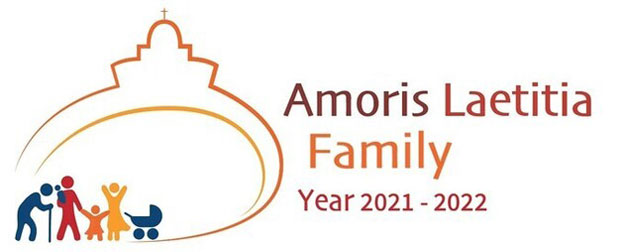
(The Catholic Messenger has been featuring columns by Greg Popcak, PhD, that provide families of any shape or size with insights on strengthening relationships and faith in the home. This is the sixth and final article in this series.)
Some folks worry that the term, “domestic church” potentially leaves out a lot of people. Can you be a domestic church even if your family doesn’t look like the stereotypical “ideal Christian household” (whatever that means)?
The term, “domestic church” is specific, but it’s not exclusive. The first-century Christian idea of family represented a radical departure from the pagan Roman understanding of family based on blood. Christians taught that ties of grace were even more binding than ties of blood. All the baptized are brothers and sisters in Christ and those ties were meant to supersede all other earthly connections. This represented a radical revisioning of what it meant to be “family.” The “domestic church” is certainly rooted in the natural family, but it is simultaneously much broader, because it’s ultimately a divine institution, not merely a human one.
It’s helpful to think of a “domestic church” as a household of persons who are 1) united to God and each other through the sacramental life of the Church and 2) committed to living out the Christian/Trinitarian vision of love in their relationships with each other and the world. Let’s break this down.
“A household of persons united to God and each other through the sacramental life of the Church” means that it’s grace, not necessarily blood that makes a household a domestic church. Of course, just living under the same roof doesn’t make a domestic church happen any more than standing around in an empty church building makes Mass happen. In both cases, the people who have gathered have to be intentional about what they’re doing. That’s why, in addition to sharing a sacramental connection, a domestic church must also be committed to “living out the Christian/Trinitarian vision of love in their relationships with each other and the world.”
Although the world has its own ideas about love, Christian disciples are meant to live and promote a uniquely Christian vision. For Christians, loving someone means: 1) being in intimate communion with them — like the Trinity is; and 2) giving everything we have to help each other become everything God created us to be — like Jesus did. The domestic church’s mission is building deeply grace-filled, intimate relationships rooted in the commitment to work for each other’s ultimate good.
The degree to which the people you live with are united by sacramental grace and committed to living out the Christian/Trinitarian vision of love in all your relationships is the degree to which your household represents a true domestic church. Likewise, the degree to which this isn’t true of your household is the degree to which God is calling you and yours to grow. Every domestic church lives in the tension that exists between the already present and not-yet-fulfilled kingdom of God.

It’s important to note that, in this model, married households rightfully enjoy special pride-of-place, but not because they represent some kind of human ideal. They deserve special respect because they share a stronger sacramental connection and because, as “icons of the Trinity,” they are better equipped to witness to Trinitarian love. Other households aren’t lesser domestic churches and married households aren’t automatically “ideal.” There are different kinds of domestic churches — all of which share some sacramental connection and each of which witnesses to Christian/Trinitarian love in the manner that’s most appropriate to its reason-for-being.
What about single people? Are they excluded from domestic church life? Certainly not. For the Christian, there is no such thing as an individual. To be human is to be in relationship with others. Whenever possible, even if they live separately, single Christians should actively seek out opportunities to participate and serve the domestic churches they grew up in or (in the case Christian grandparents, for example) gave rise to.
That said, if a person really does not have a viable connection to their own domestic church, Christians must do everything we can to make them an active and welcome part of our domestic churches. The early church did not attend to widows and orphans by creating social welfare agencies. They opened their doors and welcomed the stranger into their midst as a true brother or sister in Christ.
Certainly, social services are essential but they can’t possibly replace the authentic opportunities for accompaniment that the domestic church can provide. The radical hospitality that Christian households are called to is meant to make sure that no one is alone.
Promoting domestic church life doesn’t mean indulging in some Ozzie and Harriet fetish. It means calling all households to holiness and asserting the authentic communion in which every Christian person is called to live.
(Greg Popcak, PhD, is the author of many books and the executive director of the Peyton Institute for Domestic Church Life, peytonfamilyinstitute.org)











